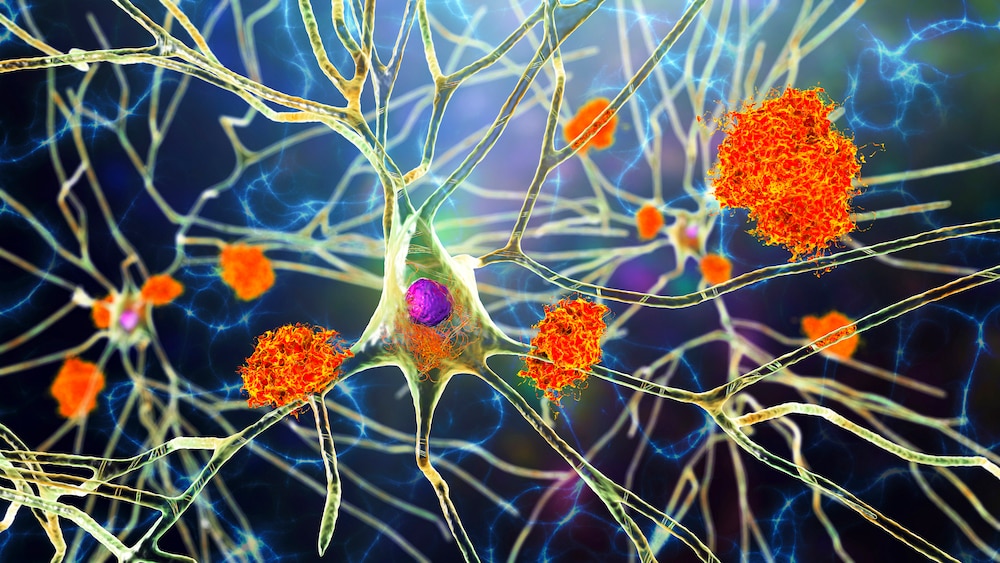Create a free profile to get unlimited access to exclusive videos, sweepstakes, and more!
Human forgetfulness is a feature, not a bug
Turns out, forgetting is a normal part of learning

Each of us builds a model of the world around us through our own experiences and our memories of those experiences. Forgetting something, from a certain point of view, is almost the same as if that thing had never happened at all. That’s why diseases like Alzheimer’s and dementia, which rob us of our cherished memories are so tragic. It turns out, that loss of memory might be a corruption of a totally natural and even helpful process of beneficial forgetting.
Tomás Ryan is a neuroscientist at the School of Biochemistry and Immunology at Trinity College Dublin who, along with colleague Paul Frankland, completed a review of existing literature to craft a new view of memory and memory loss. Their findings were published in the journal Nature Reviews Neuroscience.
Over the last 10 years or so, scientists have began unraveling the mysteries around memory formation and recall by studying mice and rats. They’ve done this by labeling engrams — cells which store memories — with optogenetic controls, allowing them to turn specific memories on and off. Those findings show that forgetting may not be the result of literal memory loss. The memories are still there, but the nature of the engram has changed such that it can no longer be accessed. These experimental processes could mimic those which occur naturally in the brain and result in our having forgotten something we previously knew. Moreover, the data suggests those processes, when they’re occurring normally, are a good thing.
“We need to be able to forget information that’s not relevant. Otherwise, you get stuck, and you generalize too much. You need to be able to not overfit to particular experiences. You need to be flexible,” Ryan told SYFY WIRE.
Forgetting things allows our minds to be flexible in a changing environment, open to new experiences which might differ from the ones we previously encountered. In this way, forgetting can be a kind of learning. Memories aren’t being lost randomly. Instead, the brain forgets things based on changes in the environment. It’s part of the reason you may not remember the name of a schoolmate or coworker you haven’t seen in a while. The environment told your brain that information was no longer necessary.
Importantly, those memories aren’t actually gone, they’re just more difficult to recall. Which is why you can forget things temporarily and then have the memory triggered. These same processes might also provide insight into what’s happening in diseases like Alzheimer’s.
“When we’re forgetting memories due to disease, we’re not actually forgetting them. We’re activating natural forgetting at a time when we shouldn’t be doing it. That’s why people can still retrieve them using interventions,” Ryan said.
The work also shows that some memories are more likely to be forgotten than others. Those memories with strong psychological associations tend to stick, and motor memories tend to remain even across decades. If you’ve ever heard the phrase “it’s like riding a bicycle,” this is where it comes from. Motor memories are related to a person’s body relative to physical pressures like gravity, and laws of motion. Those relationships don’t tend to change across a lifetime.
This kind of natural forgetting might also explain why most of us don’t remember anything from early childhood. The nature of our existence changes so much between infancy and adolescence that most, if not all, of those memories are suppressed.
“That’s a remarkable feature of a subset of the mammalian kingdom, probably because we need to exist in two different niche environments,” Ryan said. “We go from being dependent on caregivers to being more autonomous. That’s why I think infantile amnesia happens. We think that is also reversible, in principle.”
These revelations about memory are likely only the beginnings of the whole truth. Ryan likens the current state of memory neuroscience to the field of genetics in the early 20th century, when we had ideas about inheritance but were a long way from understanding how genes work to create that inheritance. Similarly, we can probe at memories by looking at outward behaviors, but that’s akin to seeing an inherited trait instead of the genes themselves.
“Memory is this sort of catchall term for things that go into the process which includes experience, perception, learning, memory formation, memory consolidation, memory maintenance, and recall,” Ryan said. “We want to know what the memory is made of; only then will we know how information is coded in the brain. Until then, the brain is a black box.”
The good news is, you no longer have to feel bad for forgetting the name of your old neighbor or the aunt you only met at one family reunion when you were seven. That’s just your brain working exactly the way it’s supposed to.


























